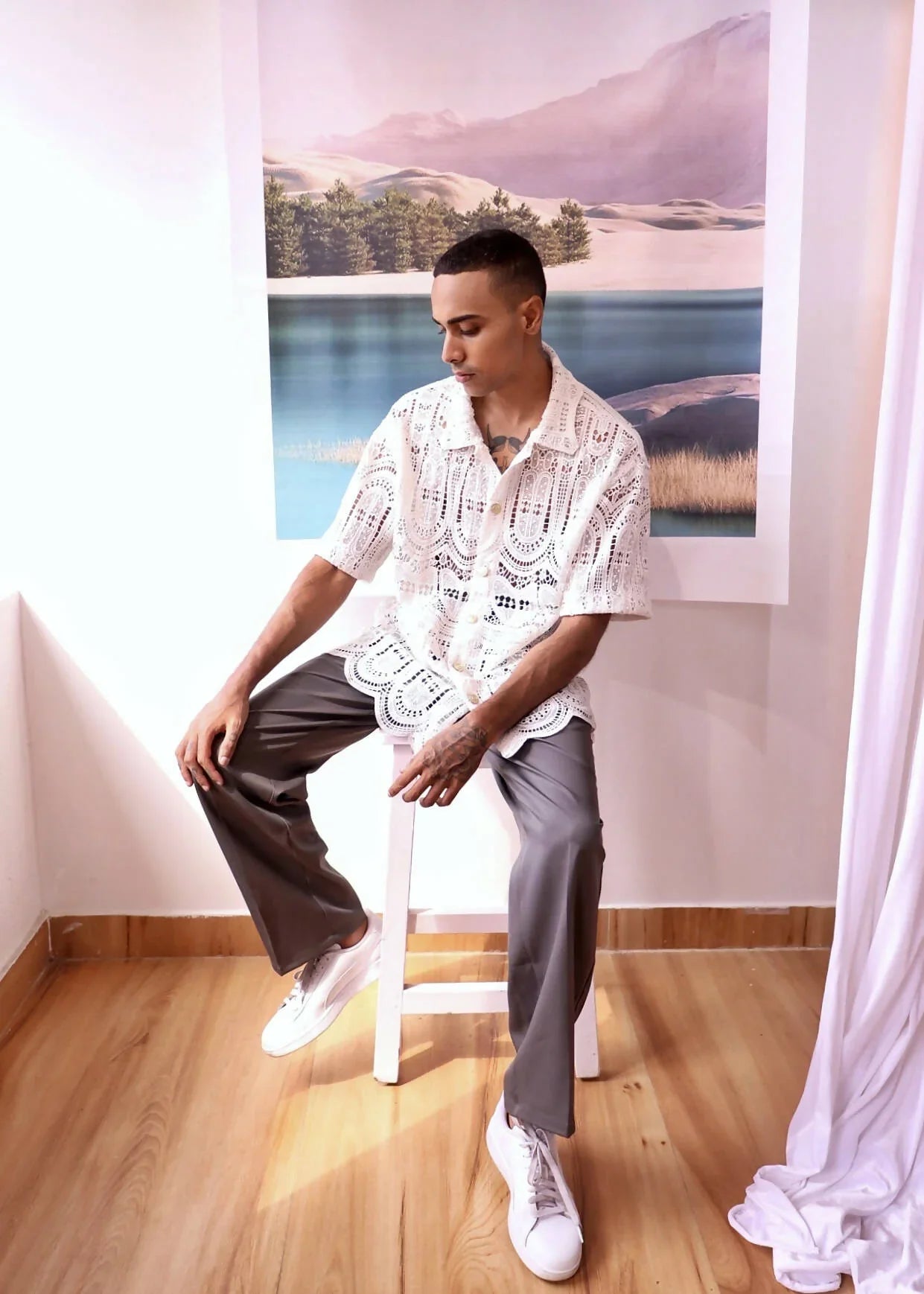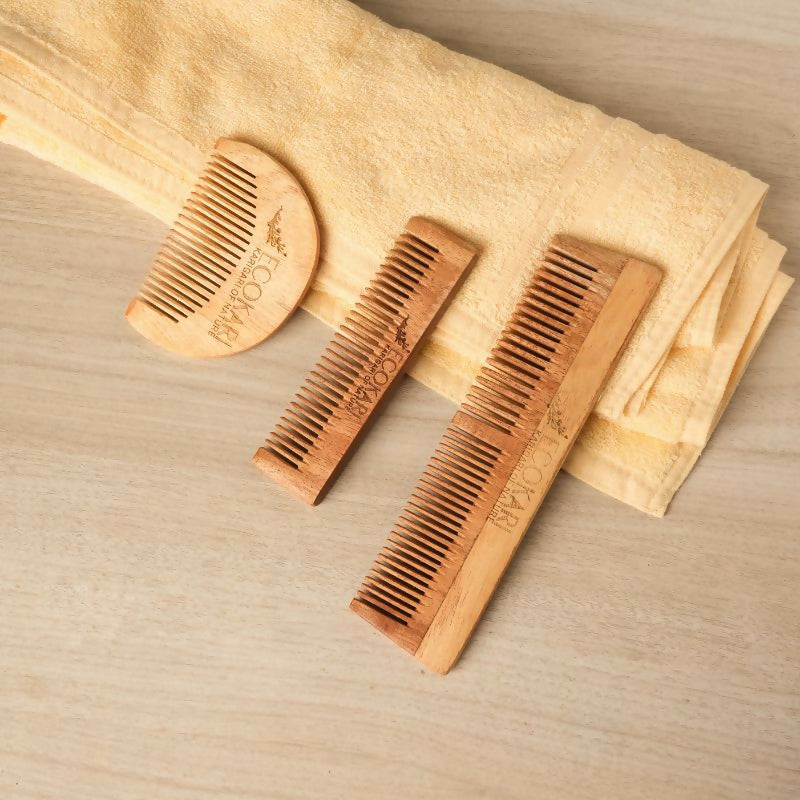Bekar - A brand that is re-defining the meaning of waste
About the brand and the Founder’s journey
Bekar – it’s a conversational slang in the Hindi language that is used to describe anything that is “useless”. It is also the word that Ashwajeet Singh, the founder of the brand Bekar, heard the most when he embarked on his journey to work with leftover yarns from textile factories.
Time and again he was told that his initiative would be “bekar” because working with leftover yarn or “bekar” materials was unheard of (at least in his close quarters). Even the textile industries that he would approach to source the leftover yarn from would dismissively refer to the yarn as “bekar”. He was also constantly discouraged from becoming an entrepreneur and even more so in a space where he had limited textile knowledge or fashion design experience. It was unfathomable by most as to why one would knowingly venture out on a project which was anything but conventional and hence, doomed to failure. But he powered through nonetheless and when it was time to give a befitting name to the brand, he decided to call it Bekar. He realised that this would be the most apt way to reclaim the word’s connotation and re-introduce it to mean ‘a work of art’.
Bekar is now a young initiative, started in the later part of 2019, which offers home furnishings and fashion accessories by repurposing high quality waste and surplus materials sourced from textile factories and export houses. Its products are truly sustainable in nature as they are hand-woven, chemical-free and do not use water for their production.
Design Process
“Every design that comes out of Bekar is unique” shares Ashwajeet. The raw materials for Bekar’s products are sourced from different vendors such as factories, workshops, export houses and scrap dealers. “As we have no control on the feed stock in terms of its colour, fabric composition and volume, the products that get created, thereby, are distinct and inimitable.” highlights Ashwajeet.
He further reveals that, in reality, it is the raw materials that dictate and lead the way in the design process of a product. After the sourced yarn is sun dried and painstakingly sorted, feasible design patterns and suitable weaving techniques are evaluated and determined by Ashwajeet and his exceptionally skilled weavers, collectively. The weavers then meticulously work by paying the utmost attention to details and by ensuring that the envisioned designs come to life. It is during this production process where one gets to witness how the interplay of the warp and weft threads result in beautifully woven textiles with the most endearing patterns.
Ashwajeet emphasizes that it is, in fact, the weavers who are the architects and artists of Bekar’s products. “Our designs not only tell the story of Bekar, but they also showcase the musings of the weaver creating the design.”, he said. He believes that we should challenge the notions of “production error” or “human error” popularised by mainstream mass production. He points out, “A weaver is bound to experience a range of emotions during the whole duration of weaving a textile. And if those emotions get transferred onto the textile by way of the weaver unintentionally missing a weave or weaving two threads instead of one, it just adds more to the charm of a handwoven textile. It thereby elevates the weaver’s stature to that of an artist and his creation to a piece of art.”

(Weaver at the Bekar Studio)
Inspiration
Ashwajeet shared that he is deeply inspired by our mothers, who are in fact our foremost reference to upcycling. They ensure to repurpose and extract as much use as possible out of things like empty containers and glass jars.
He also added that sustainability has found its way into his lifestyle. He has not only been using public transportation but also has never indulged in air conditioning. He further reflects that the last time he purchased a pair of denim jeans was over four years ago.
Product Categories
Bekar’s products range from apparel and fashion accessories to home furnishings. It started out by making shirts out of the finest cotton and denim without using any water or artificial fabric softener. Now it has expanded its offering to include throws made out of repurposed acrylic yarns from export houses and rugs made out of raw waste silk. In the future, Ashwajeet hopes to design products using materials like hemp, bamboo yarn, rice straw and banana fibre as well.
Challenges
Ashwajeet also shed some light on the many challenges that Bekar, as a circular/sustainable brand faces. From the factories to the consumers, every player in the ecosystem has presented obstacles that the brand had to address.
Factories are often unwilling to put in the minimal extra effort required to collect and appropriately segregate the leftover yarn, as these tasks offer little to no value to their operations. Furthermore, as these factories are run as extremely traditional and archaic establishments they are not receptive to new ideas which present untapped opportunities for by-products that are otherwise disregarded.
Additionally, as leftover yarn and other waste materials are sold to different players in varying quantities, the market continues to be extremely fragmented and disorganised. Sourcing and gathering sufficient volumes of good quality raw material leaves entrepreneurs scrambling from one source to the other.
Even the consumers tend to have numerous misconceptions about upcycled products which hold them back from choosing these products. Ashwajeet shares that his interactions with consumers revealed that they perceive that designs of upcycled products, home furnishings specifically, would be limited to that of a patchwork of fabric scraps. Many are still of the opinion that for a product to be called sustainable it needs to be made with virgin natural material only and not leftover “toxic” yarn. They believe that if a product is made out of repurposed materials it must not be durable and therefore deemed expensive to purchase. Educating the consumers and addressing their concerns has been and continues to be crucial for Ashwajeet and Bekar to ensure that there is a shift in consumers’ purchasing behaviour and attitude.
Vision
When asked about his vision for the Bekar brand, Ashwajeet was quick to respond that he envisions it to become a global brand that caters to a wide array of people with diverse tastes, needs and preferences. He believes that a stepping stone for that would be to up-skill the Bekar team which can then accelerate the brand’s current growth and phenomenal market feedback. Finally, he hopes that by way of collaborations with other designers and weaving communities he can not only add more lucrative products to Bekar’s catalogue but also stay engaged in the ever growing world of sustainability.
-
Article credit: Harshitha Venati
Image credit: Bekar
--
You can shop Bekar products here -







Leave a comment